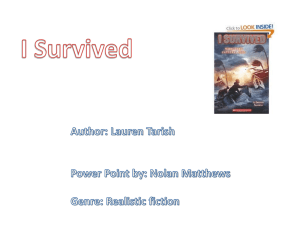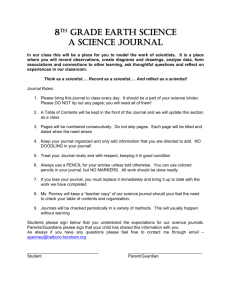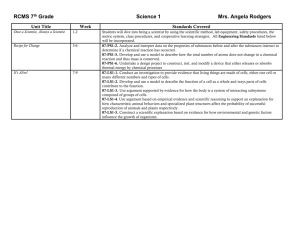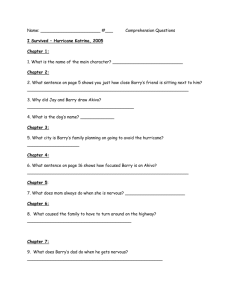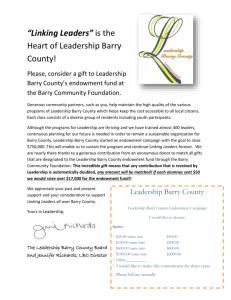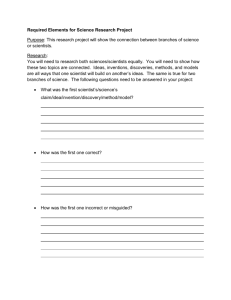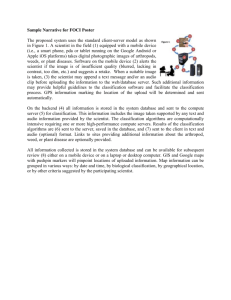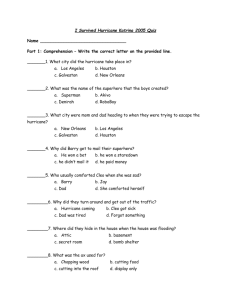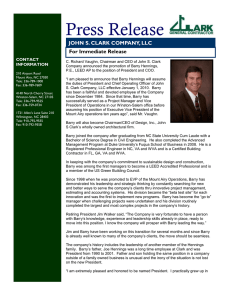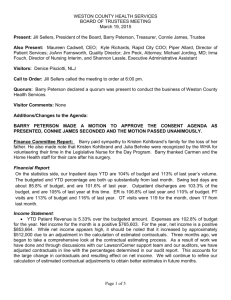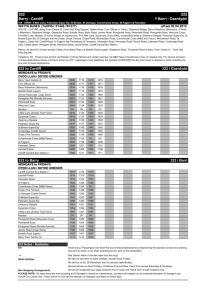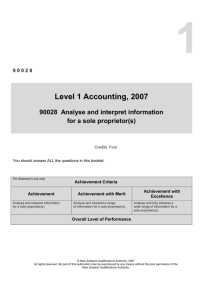File
advertisement
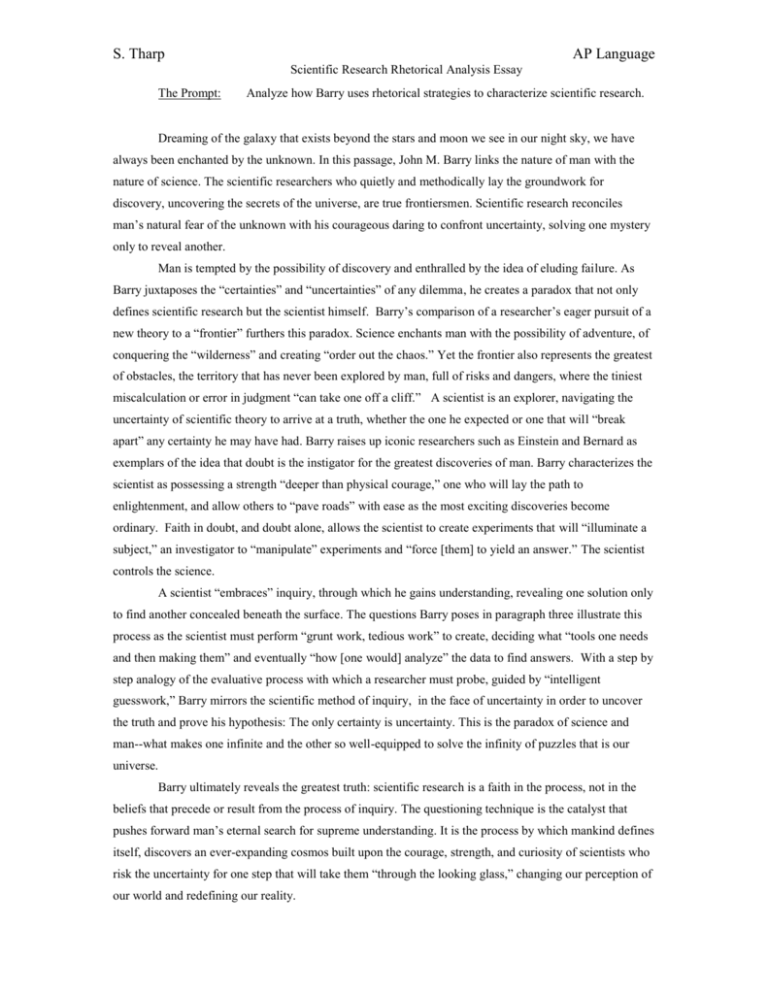
S. Tharp AP Language Scientific Research Rhetorical Analysis Essay The Prompt: Analyze how Barry uses rhetorical strategies to characterize scientific research. Dreaming of the galaxy that exists beyond the stars and moon we see in our night sky, we have always been enchanted by the unknown. In this passage, John M. Barry links the nature of man with the nature of science. The scientific researchers who quietly and methodically lay the groundwork for discovery, uncovering the secrets of the universe, are true frontiersmen. Scientific research reconciles man’s natural fear of the unknown with his courageous daring to confront uncertainty, solving one mystery only to reveal another. Man is tempted by the possibility of discovery and enthralled by the idea of eluding failure. As Barry juxtaposes the “certainties” and “uncertainties” of any dilemma, he creates a paradox that not only defines scientific research but the scientist himself. Barry’s comparison of a researcher’s eager pursuit of a new theory to a “frontier” furthers this paradox. Science enchants man with the possibility of adventure, of conquering the “wilderness” and creating “order out the chaos.” Yet the frontier also represents the greatest of obstacles, the territory that has never been explored by man, full of risks and dangers, where the tiniest miscalculation or error in judgment “can take one off a cliff.” A scientist is an explorer, navigating the uncertainty of scientific theory to arrive at a truth, whether the one he expected or one that will “break apart” any certainty he may have had. Barry raises up iconic researchers such as Einstein and Bernard as exemplars of the idea that doubt is the instigator for the greatest discoveries of man. Barry characterizes the scientist as possessing a strength “deeper than physical courage,” one who will lay the path to enlightenment, and allow others to “pave roads” with ease as the most exciting discoveries become ordinary. Faith in doubt, and doubt alone, allows the scientist to create experiments that will “illuminate a subject,” an investigator to “manipulate” experiments and “force [them] to yield an answer.” The scientist controls the science. A scientist “embraces” inquiry, through which he gains understanding, revealing one solution only to find another concealed beneath the surface. The questions Barry poses in paragraph three illustrate this process as the scientist must perform “grunt work, tedious work” to create, deciding what “tools one needs and then making them” and eventually “how [one would] analyze” the data to find answers. With a step by step analogy of the evaluative process with which a researcher must probe, guided by “intelligent guesswork,” Barry mirrors the scientific method of inquiry, in the face of uncertainty in order to uncover the truth and prove his hypothesis: The only certainty is uncertainty. This is the paradox of science and man--what makes one infinite and the other so well-equipped to solve the infinity of puzzles that is our universe. Barry ultimately reveals the greatest truth: scientific research is a faith in the process, not in the beliefs that precede or result from the process of inquiry. The questioning technique is the catalyst that pushes forward man’s eternal search for supreme understanding. It is the process by which mankind defines itself, discovers an ever-expanding cosmos built upon the courage, strength, and curiosity of scientists who risk the uncertainty for one step that will take them “through the looking glass,” changing our perception of our world and redefining our reality.
